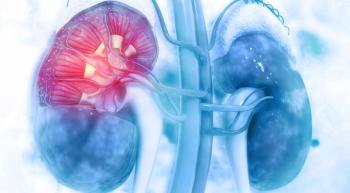
Survivors Often Face Lingering Problems Long After Treatment, Survey Finds
With the number of cancer survivors expected to reach 19 million by 2024, how these individuals fare long-term is an issue of ongoing interest and concern. An analysis of findings from a large survey of survivors conducted by the American Cancer Society (ACS) has found that many survivors continue to face physical, mental, and financial difficulties long after their treatment ends.
Mary Ann Burg, PhD, LCSW
With the number of cancer survivors expected to reach 19 million by 2024, how these individuals fare long-term is an issue of ongoing interest and concern. An analysis of findings from a large survey of survivors conducted by the American Cancer Society (ACS) has found that many survivors continue to face physical, mental, and financial difficulties long after their treatment ends.
“Overall, we found that cancer survivors are often caught off guard by the lingering problems they experience after cancer treatment,” Mary Ann Burg, PhD, LCSW, professor of social work at the College of Health and Public Affairs at the University of Central Florida, said in a statement. “In the wake of cancer, many survivors feel they have lost a sense of personal control, have reduced quality of life, and are frustrated that these problems are not sufficiently addressed within the medical care system.”
Burg, the lead author of the study published online this month in the journal Cancer, added that these findings could help clinicians and other experts develop interventions that are tailored to the specific types of problems and concerns that cancer survivors may experience.
For their analysis, Burg and colleagues looked at responses from 1514 2-, 5-, and 10-year cancer survivors who answered this open-ended question in the ACS survey: “Please tell us about any needs you have now as a cancer survivor that ARE NOT being met to your satisfaction.” Respondents ranged in age from 24-97 years; proportionately, more women were represented, and 18% of the respondents were minorities.
The researchers identified 16 themes of unmet needs, and their number and type were not associated with time elapsed since cancer treatment. Breast cancer survivors had more unmet needs than other survivors.
Survivors most frequently expressed physical problems, with 38% saying that these were an issue. Problems related to sexuality and incontinence among prostate cancer survivors were especially common. Financial problems related to the costs of treatment also persisted long after treatment for 20% of respondents, with Black and Hispanic survivors being especially hard-hit. Anxiety about recurrence was a common theme, regardless of the type of cancer they had or how many years they had survived cancer.
Burg noted that improvements are needed concerning public awareness of cancer survivors’ problems, honest professional communication about the side effects of cancer, and the coordination of medical care resources to help survivors and their families cope with their lingering challenges.
“This study was unique in that it gave a very large sample of cancer survivors a real voice to express their needs and concerns,” Burg said.
Burg MA, Adorno G, Lopez ED, et al. Current unmet needs of cancer survivors: an analysis of open-ended responses to the American Cancer Society Study of Cancer Suvivors II [published online ahead of print January 12, 2015]. Cancer.
Newsletter
Knowledge is power. Don’t miss the most recent breakthroughs in cancer care.





























































































